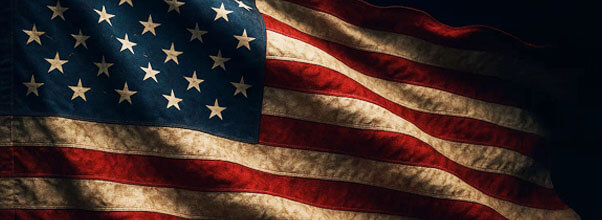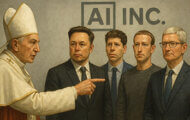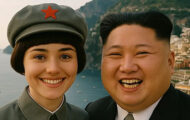I was there. I saw it unfold.
I was a child when the rabbit-eared TV wriggled into focus and Walter Cronkite’s voice cracked. JFK’s coffin rolled past St. Matthew’s; my mother and father sitting on our sofa glued to the Admiral black and white tube. Five years later, I watched a second column of flame carry human footprints to the Moon while my father muttered that at least somebody still did impossible things. Between those two moments, I saw hush money travel across a teletype during the Watergate hearings and, finally, an orange fireball blossom against Challenger-blue. I saw the American heartbeat—sacrifice, triumph, self-correction, grief—from outside its borders, yet felt it thud under my own ribs. That was my first, unauthorized naturalization ceremony.
The American Way didn’t spring from committee charters or marketing campaigns; it was carved out of wilderness by explorers who risked everything on an unmapped coast, settlers who bent steel and soil into towns, and colonists who defied an empire with more grit than gunpowder. It was sealed by founders who, knowing they were signing their own death warrants, still pledged their lives, fortunes, and sacred honor, and invoked the protection of Divine Providence. That inheritance wasn’t a slogan — it was a covenant, paid for in advance by people who believed liberty was worth the gamble.
When I was a kid, you still heard the phrase The American Way. Not just in Superman’s oath, but in classrooms, in news copy, even in the mouths of critics who couldn’t help but admire it. You knew what it meant without needing a dictionary: risk big, work hard, stand tall in failure, get up and try again. Be generous without keeping score. Gordon Sinclair’s 1973 radio message The Americans got it exactly right—cataloguing every disaster the world mocked you for, then flipping the ledger to show every cargo hold, carrier deck, and grain shipment you sent out without an invoice. It wasn’t a marketing slogan; it was a national reflex.
Somewhere along the way, the phrase began to vanish. Maybe it started when the Cold War ended and the permanent bureaucracy decided global citizenship sounded safer than national pride. Maybe it faded when “risk” became a dirty word, and lawyers replaced test pilots as the arbiters of what America was allowed to attempt. You can see it everywhere now—people in positions of influence who default to we can’t, we shouldn’t, it’s too risky. I saw it again recently in the smallest of places: an online community moderator lecturing creators about all the reasons not to try, not to push, not to risk. The tone was apologetic, bureaucratic, and utterly un-American. It’s the voice of a culture that’s been captured by fear.
Maybe the last great breath of The American Way came on October 5th, 2011, when the last eagle silhouette left the stage and the valley ceded the sky to middle-managers with PowerPoint risk registers. Within a year, the cultural frontier was closing. The decade that followed wasn’t about launch pads and moonshots—it was about trigger warnings, safe spaces, and a constant fear of saying or building the wrong thing. The risk-takers were replaced by risk-managers. It was the end of the unbridled optimism I’d felt in the 1980s, the belief that America could dare anything and that the rest of the world might follow.
That isn’t the America I tuned in to watch from across the 49th parallel. It’s not the America that went to the Moon on a tin can and a prayer, or that emptied its wheat bins for strangers. The American Way I learned was a kind of national muscle memory—a readiness to move toward the fire, to improvise when the blueprint runs out, to value the doing over the hedging.
Fear and risk-aversion will never inspire the world. They will never make a child in another country feel the thump of a foreign flag in his chest. If Americans let that spirit be replaced by the small safetyisms of the age, the phrase will die, and with it the living habit behind it.
So claim it aloud—in front of the widows of the Challenger crew, in front of the cornfields and the coastal docks. Speak it so that a kid stuck in a Canadian snowbank feels the callus return to his fingers. Because the rest of us—those who once stood outside your borders, watching—know that without The American Way, the world will be a smaller, meaner place. And nobody will come to save it.
—Wolfshead





I can’t wait for that spirit to return. Not only to America.
I always liked this poem by Langston Hughes:
Hold fast to dreams
For if dreams die
Life is a broken-winged bird
That cannot fly.
Hold fast to dreams
For when dreams go
Life is a barren field
Frozen with snow.